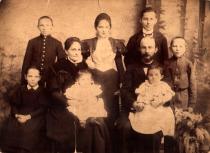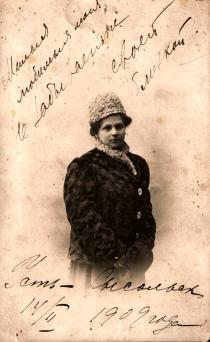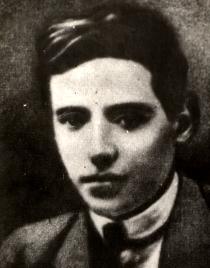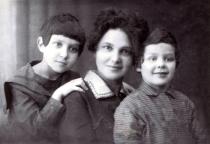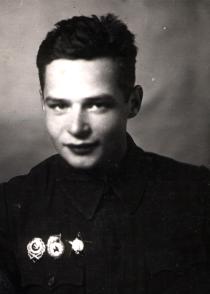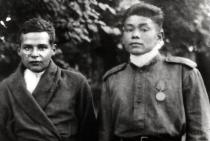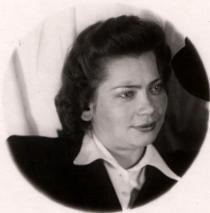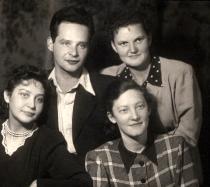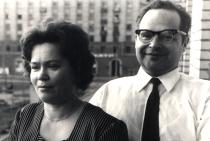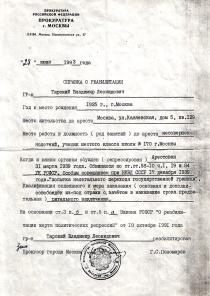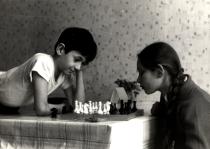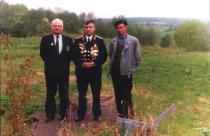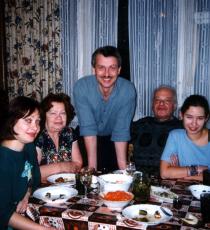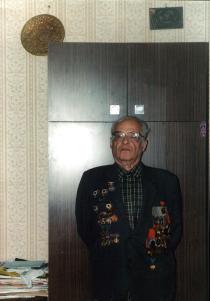This photo of me was taken during the Great Patriotic War in 1944. I am in the rank of guard sergeant in hospital in Kaunas after I was wounded on my neck. I had this photo taken to send it to my family in Moscow. They kept it till I returned from the front.
On Sunday 22 June 1941 the radio announced with a tragic voice of the announcer: 'Listen to an important news' and then Molotov spoke. The war had begun and bombs were falling. My sisters Victoria and Inga, my cousin sister Marianna, my mother and I and my aunts Sophia and Rachil evacuated to Naberezhniye Chelny. I worked as a scale operator and later, when tractor operators went to the army, their foreman trained me to operate tractors and I became a tractor operator. I was very strong.
Soon I quit the kolkhoz and went to work on the ?Zhemchuzhina? boat, the biggest freight and passenger boat in the Volga-Kama basin. I was a stoker working. As the front line was approaching Stalingrad in 1942 the ?Zhemchuzhina? was used for the needs of the front for the transportation of ammunition and the wounded. Once our boat bumped into a mine and I was assigned to the marines. I was 17. We were trained to manage rifles. I was wounded in my first battle and taken to hospital. From there I joined Novosibirsk reserve infantry division 21 training infantry sergeants. I liked it there. I joined the Komsomol, and became a Komsomol battalion organizer. I wrote articles for a district newspaper. Then we headed to the front as a marching battalion. We got off the train in Toropetz, and marched to infantry division 71 of the Baltic Front. I was assigned to the division intelligence. Later I served in intelligence units of different divisions and fronts throughout the war. I had to catch prisoners for interrogation, identify a junction between the wings of armies, identify the front line and set up communications with partisans. We were in northeastern part of Belarus, in the vicinity of Nevel.
The Soviet troops started their advance to break through the blockade of Leningrad, and our division was ordered to attack from the north of Nevel to distract Germans and make it impossible for them to provide additional troops to the Leningrad Front. We suffered significant losses. I was wounded: my both hands were shot through during an attack. After the hospital I was sent back to the front line in the 17th Guard division. This was the period of preparation to the ?Bagration? operation for liberation of Belarus. This was the 3rd Belarusian Front. There were big battles near Vitebsk [about 450 km west of Moscow]. I was severely wounded there. After the hospital I was sent back to the front. This was already the year of 1944.

